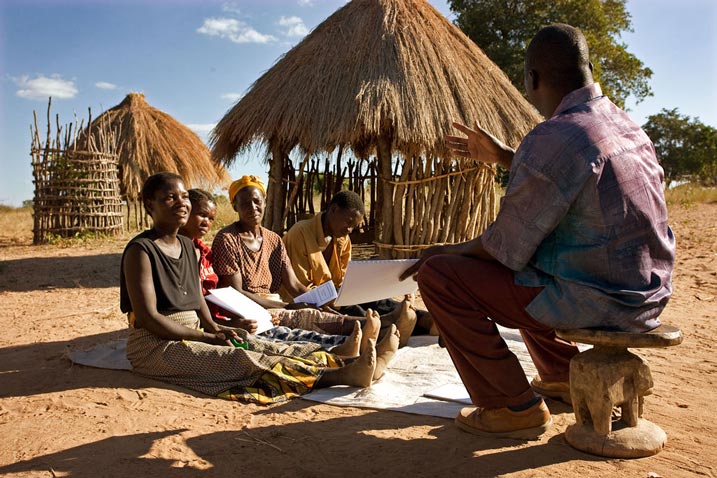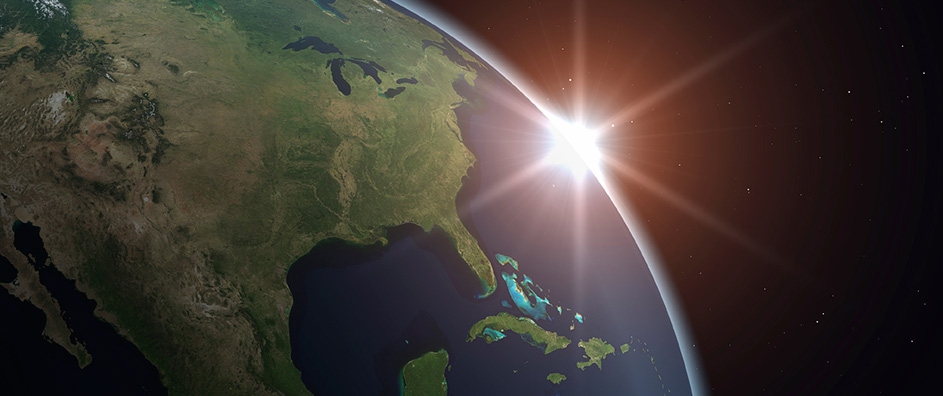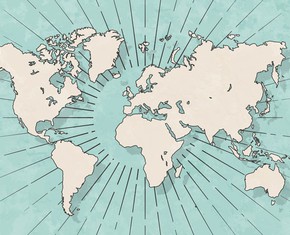The views expressed in our content reflect individual perspectives and do not represent the authoritative views of the Baha'i Faith.
Through our ignorance and lack of viewpoint we divide this common home, we divide the members of this family into various races, we divide religion into different sects and then with those suppositional division we wage war against one another; we shed one another’s blood and we pillage one another’s possessions. Is not this unpardonable ignorance? Is this not the height of injustice? Were we just and could we observe without prejudice we would realize that there are no fundamental differences. – Abdu’l-Baha, Divine Philosophy, pp. 178-179.
Who speaks for the founder and prophet of a new Faith after the prophet’s passing?
That issue has plagued every previous religion in history. It has started religious wars. Deep, disastrous disagreements over succession and authority and influence have created schisms, sects and divided denominations. In the worst cases, some of these internecine battles have turned into vicious struggles for power, producing carnage, hatred and fanaticism.
Of course, religions that go through this kind of disunity and violent conflict usually lose the essential spirit of their founder’s message. The prophets of God all taught love, kindness and unity; but it can seem inevitable that after their deaths their teachings soon fail to retain any semblance of that original purity.
We have many historical examples. Hinduism and Buddhism both now have thousands of different sects, divisions and divergent practices. Judaism has split into a broad spectrum of beliefs, from ultra-orthodox to reform. Several thousand Christian denominations exist, from deeply fundamentalist to extremely liberal, and many have gone to war with each other. Islam divided itself in two immediately after Muhammad’s passing, and has since splintered into at least a thousand factions, sects and orders.
But the Baha’i Faith, now more than a century after the passing of its founder Baha’u’llah, has retained its unity. How? The global Baha’i community gets its continuing unity from the ongoing guidance Baha’is call the Covenant.

Baha’is in Zambia
Because of that unique achievement, every year on November 26, Baha’is around the world celebrate the unity of their Faith—and the essential unity of all Faiths—on the Day of the Covenant. This singular Baha’i Holy Day recognizes and honors Abdu’l-Baha as the Center of Baha’u’llah’s Covenant. Abdu’l-Baha’s appointment as the head of the Faith represents the unbroken, unified line of spiritual guidance that has safeguarded the Baha’i Faith from division and disunity. It also recognizes the wider covenant that exists between God and humanity, which expresses itself in the prophetic connections that link every Faith. This eternal covenant between God and humanity calls on every human being to recognize and accept all of the founders of the world’s great Faiths, forming the system of divine education Baha’is call progressive revelation.
Abdu’l-Baha wrote that this great eternal covenant, God’s promise never to leave His creation bereft of guidance, has held true throughout every time and civilization:
…it is a basic principle of the Law of God that in every Prophetic Mission, He entereth into a Covenant with all believers — a Covenant that endureth until the end of that Mission, until the promised day when the Personage stipulated at the outset of the Mission is made manifest. – Abdu’l-Baha, Selections from the Writings of Abdu’l-Baha, p. 207.
Baha’u’llah’s Covenant, from his Will and Testament, continues that unbroken chain of divine guidance and love—not only by promising humanity that another worldwide Faith would come in the future, but by appointing Abdu’l-Baha as his successor. Unique in all religious history, that Covenant provides the organizing principle for the continuation of the Baha’i teachings and the administration of the growing Baha’i community around the world. It also answers the questions of succession and leadership that have troubled so many past religions, and prevents the kind of contention and schism that has led to such irreligious ends.
From the time of Baha’u’llah’s passing until the end of his own life, Abdu’l-Baha had the authority to function as the sole interpreter of the Baha’i writings. Baha’u’llah’s appointment of Abdu’l-Baha as the Center of the Covenant also recognized that in his personal life, in his words and deeds, Abdu’l-Baha perfectly exemplified the qualities and ideals of a true Baha’i.
When Abdu’l-Baha passed away in 1921, the Baha’i Covenant continued. Abdu’l-Baha’s Will and Testament named Shoghi Effendi as the Guardian of the Baha’i Faith, and made provisions for the global election of the Universal House of Justice, opening the way for a transition from hereditary to democratic succession and governance. The election of the first Universal House of Justice occurred in 1963, a hundred years after Baha’u’llah proclaimed the beginning of his Faith. With that milestone, the Baha’i Faith became the first global religious community to govern itself in a purely democratic manner.
The Baha’i Covenant, with its provision for a clear line of succession that has kept the unity of the Baha’i Faith intact and inviolable, serves not only to unite and bind together the hearts of the Baha’is around the world—it also demonstrates, to all humanity, that we can achieve a more global unity which includes and brings together all people and nations:
As to the most great characteristic of the revelation of Baha’u’llah, a specific teaching not given by any of the Prophets of the past: It is the ordination and appointment of the Center of the Covenant. By this appointment and provision He has safeguarded and protected the religion of God against differences and schisms, making it impossible for anyone to create a new sect or faction of belief. To ensure unity and agreement He has entered into a Covenant with all the people of the world, including the interpreter and explainer of His teachings, so that no one may interpret or explain the religion of God according to his own view or opinion and thus create a sect founded upon his individual understanding of the divine Words. – Abdu’l-Baha, The Promulgation of Universal Peace, pp. 455-456.
















Comments
Sign in or create an account
Continue with Googleor